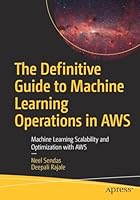
Getting Started with NSX-T: Logical Routing and Switching: The Basic Principles of Building Software-Defined Network Architectures with VMware NSX-T
- Length: 391 pages
- Edition: 1
- Language: English
- Publisher: Apress
- Publication Date: 2021-03-01
- ISBN-10: 1484267079
- ISBN-13: 9781484267073
- Sales Rank: #916354 (See Top 100 Books)
This primer on NSX-T helps you understand the capabilities and features of NSX-T, how to configure and manage NSX-T, and integrate NSX-T with other software. The book is the first in a series that will teach you the basics of NSX-T, which is an update of VMware’s original software-defined networking (SDN) architecture aimed at making networks agile and flexible.
You will become familiar with VMware’s software-defined data center (SDDC) ecosystem and how NSX-T fits in. You will understand NSX-T components such as NSX-T Manager, NSX-T Edge Transport Nodes, and NSX-T Host Transport Nodes. And you will learn how to install and configure network services such as East/West and North/South routing capabilities, layer two switching, VRF, EVPN, multicast, and layer two bridging.
The book provides best practices on how to configure routing and switching features, and teaches you how to get the required visibility of not only your NSX-T platform but also your NSX-T-enabled network infrastructure.
The book explains security, advanced network features, and multi-site capabilities and demonstrates how network and security services can be offered across multiple on-premise locations with a single pane of glass for networking and security policy management. The interface with public cloud services is discussed and the book explains NSX-T operation in an on-premise private cloud and positioning and integrating NSX-T on a public cloud (off premises).
What You Will Learn
- Understand how NSX-T fits in the VMware SDDC ecosystem
- Know what NSX-T is, its components, and the terminology used
- Install NSX-T
- Configure NSX-T network services
- Manage the NSX-T network
Who This Book Is For
Virtualization administrators, system integrators, and network administrators







